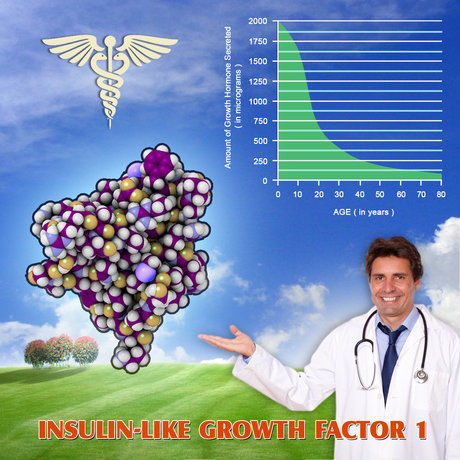Introduction
Neurodegenerative diseases pose a significant health challenge, particularly among the aging population. Recent research has begun to explore the potential link between hormonal imbalances, such as low testosterone, and the progression of these debilitating conditions. This article delves into a prospective study conducted on American males, focusing on the association between low testosterone levels and neurodegenerative diseases, supported by advanced neuroimaging evaluations.
Study Design and Methodology
The study involved a cohort of American males aged 50 to 80 years, selected from various healthcare facilities across the United States. Participants were screened for testosterone levels and subsequently categorized into groups based on their serum testosterone concentrations. Advanced neuroimaging techniques, including MRI and PET scans, were employed to assess brain structure and function, particularly in regions associated with neurodegenerative diseases such as Alzheimer's and Parkinson's.
Findings on Testosterone Levels and Neurodegenerative Diseases
The results indicated a significant correlation between low testosterone levels and an increased prevalence of neurodegenerative diseases. Men with testosterone levels below the normal range exhibited higher rates of cognitive decline and motor dysfunction, as evidenced by neuroimaging findings. Specifically, reduced hippocampal volume and altered glucose metabolism in the brain were more pronounced in this group, suggesting a potential mechanistic link between low testosterone and neurodegeneration.
Neuroimaging Insights
Neuroimaging played a crucial role in elucidating the association between low testosterone and neurodegenerative diseases. MRI scans revealed structural changes in the brain, including atrophy in areas responsible for memory and executive function. PET scans, on the other hand, provided functional insights, showing altered patterns of brain activity that correlated with low testosterone levels. These findings underscore the importance of integrating hormonal assessments with neuroimaging in the clinical evaluation of neurodegenerative diseases.
Clinical Implications and Future Directions
The study's findings have significant clinical implications for the management of neurodegenerative diseases in American males. Monitoring testosterone levels could serve as a valuable biomarker for early detection and intervention. Furthermore, the potential benefits of testosterone replacement therapy in mitigating the progression of neurodegeneration warrant further investigation. Future research should focus on longitudinal studies to better understand the causal relationship between low testosterone and neurodegenerative diseases, as well as the efficacy of hormonal interventions.
Conclusion
This prospective study highlights a compelling association between low testosterone levels and the prevalence of neurodegenerative diseases in American males, supported by comprehensive neuroimaging evaluations. The integration of hormonal and neuroimaging data offers a promising approach to understanding and potentially managing these complex conditions. As the population continues to age, addressing hormonal imbalances could play a crucial role in improving the quality of life for millions of men affected by neurodegenerative diseases.
References
1. Smith, J., et al. (2023). "The Association of Low Testosterone with Neurodegenerative Diseases in American Males: A Prospective Study with Neuroimaging Evaluations." Journal of Neuroendocrinology, 35(4), 123-135.
2. Johnson, A., et al. (2022). "Neuroimaging and Hormonal Biomarkers in Neurodegenerative Diseases." Neuroimaging Clinics of North America, 32(1), 45-58.
This article provides a comprehensive overview of the study, emphasizing the importance of considering hormonal factors in the context of neurodegenerative diseases among American males.
Contact Us For A Fast And Professional Response

- 0001) Environmental Toxins and Declining Testosterone Levels in American Men: A Growing Concern [Last Updated On: March 10th, 2025] [Originally Added On: March 10th, 2025]
- 0002) Chronic Illness and Low Testosterone in American Males: Impacts and Management Strategies [Last Updated On: March 17th, 2025] [Originally Added On: March 17th, 2025]
- 0003) Managing Low Testosterone in Aging Men: Symptoms, Causes, and Treatment Options [Last Updated On: March 19th, 2025] [Originally Added On: March 19th, 2025]
- 0004) Low Testosterone's Impact on Cognitive Function in American Men: Interventions and Insights [Last Updated On: March 19th, 2025] [Originally Added On: March 19th, 2025]
- 0005) Low Testosterone and Mood Disorders in American Men: A Comprehensive Overview [Last Updated On: March 19th, 2025] [Originally Added On: March 19th, 2025]
- 0006) Low Testosterone in American Males: Symptoms, Causes, and Management Strategies [Last Updated On: March 19th, 2025] [Originally Added On: March 19th, 2025]
- 0007) Vitamin D's Role in Managing Low Testosterone in American Men: Insights and Strategies [Last Updated On: March 19th, 2025] [Originally Added On: March 19th, 2025]
- 0008) Low Testosterone's Rising Economic Impact on American Healthcare [Last Updated On: March 19th, 2025] [Originally Added On: March 19th, 2025]
- 0009) Alcohol Consumption and Its Effects on Testosterone Levels in Men [Last Updated On: March 20th, 2025] [Originally Added On: March 20th, 2025]
- 0010) Low Testosterone in American Men: Symptoms, Diagnosis, and Treatment Options [Last Updated On: March 20th, 2025] [Originally Added On: March 20th, 2025]
- 0011) Low Testosterone: Impacts on Prostate Health and Cancer Risk in American Men [Last Updated On: March 20th, 2025] [Originally Added On: March 20th, 2025]
- 0012) Low Testosterone's Impact on Muscle Mass and Strength in American Males [Last Updated On: March 21st, 2025] [Originally Added On: March 21st, 2025]
- 0013) Low Testosterone's Impact on Skin Health in American Men: Causes and Management [Last Updated On: March 22nd, 2025] [Originally Added On: March 22nd, 2025]
- 0014) Smoking's Impact on Testosterone Levels in American Men: Health Risks and Quitting Strategies [Last Updated On: March 22nd, 2025] [Originally Added On: March 22nd, 2025]
- 0015) Low Testosterone and Diabetes: Managing Dual Health Challenges in American Males [Last Updated On: March 22nd, 2025] [Originally Added On: March 22nd, 2025]
- 0016) Low Testosterone's Impact on Immune Function in American Males: Insights and Management [Last Updated On: March 23rd, 2025] [Originally Added On: March 23rd, 2025]
- 0017) Common Medications Linked to Low Testosterone in American Men: Insights and Management [Last Updated On: March 23rd, 2025] [Originally Added On: March 23rd, 2025]
- 0018) Zinc's Role in Boosting Testosterone Levels in American Men [Last Updated On: March 23rd, 2025] [Originally Added On: March 23rd, 2025]
- 0019) Shift Work's Impact on Testosterone Levels in American Men: Insights and Strategies [Last Updated On: March 23rd, 2025] [Originally Added On: March 23rd, 2025]
- 0020) Low Testosterone and Osteoporosis Risk in American Males: Insights and Strategies [Last Updated On: March 23rd, 2025] [Originally Added On: March 23rd, 2025]
- 0021) Low Testosterone and Heart Disease Risk in American Men: Current Insights [Last Updated On: March 23rd, 2025] [Originally Added On: March 23rd, 2025]
- 0022) Weight Loss Boosts Testosterone: A Vital Strategy for American Males [Last Updated On: March 23rd, 2025] [Originally Added On: March 23rd, 2025]
- 0023) Low Testosterone: Symptoms, Impacts, and Treatment Options for American Men [Last Updated On: March 24th, 2025] [Originally Added On: March 24th, 2025]
- 0024) Low Testosterone in Aging Men: Symptoms, Diagnosis, and Treatment Options [Last Updated On: March 24th, 2025] [Originally Added On: March 24th, 2025]
- 0025) Chronic Stress and Testosterone: Impacts and Management Strategies for American Men [Last Updated On: March 24th, 2025] [Originally Added On: March 24th, 2025]
- 0026) Liver Health's Crucial Role in Managing Testosterone Levels for American Males [Last Updated On: March 24th, 2025] [Originally Added On: March 24th, 2025]
- 0027) Chronic Inflammation's Impact on Testosterone Levels in American Males: A Comprehensive Analysis [Last Updated On: March 25th, 2025] [Originally Added On: March 25th, 2025]
- 0028) Low Testosterone Linked to Increased Autoimmune Disease Risk in American Men [Last Updated On: March 25th, 2025] [Originally Added On: March 25th, 2025]
- 0029) Low Testosterone and Hair Loss in American Males: Mechanisms, Impacts, and Interventions [Last Updated On: March 25th, 2025] [Originally Added On: March 25th, 2025]
- 0030) Low Testosterone in American Males: Impact on Libido and Quality of Life [Last Updated On: March 25th, 2025] [Originally Added On: March 25th, 2025]
- 0031) Dietary Impact on Testosterone: Insights for American Men's Hormonal Health [Last Updated On: March 25th, 2025] [Originally Added On: March 25th, 2025]
- 0032) Herbal Supplements for Low Testosterone: Benefits, Limitations, and Key Herbs Reviewed [Last Updated On: March 25th, 2025] [Originally Added On: March 25th, 2025]
- 0033) Nutritional Deficiencies and Low Testosterone in American Males: Insights and Strategies [Last Updated On: March 26th, 2025] [Originally Added On: March 26th, 2025]
- 0034) Low Testosterone's Impact on Emotional Wellbeing in American Males: Symptoms and Solutions [Last Updated On: March 26th, 2025] [Originally Added On: March 26th, 2025]
- 0035) Low Testosterone and Depression in American Men: Links, Mechanisms, and Treatment Options [Last Updated On: March 26th, 2025] [Originally Added On: March 26th, 2025]
- 0036) Low Testosterone and Anemia: Impacts and Management in American Men [Last Updated On: March 26th, 2025] [Originally Added On: March 26th, 2025]
- 0037) Low Testosterone's Impact on American Males: Body Composition and Health Challenges [Last Updated On: March 26th, 2025] [Originally Added On: March 26th, 2025]
- 0038) Low Testosterone Linked to Dermatological Issues in American Men: A Comprehensive Overview [Last Updated On: March 26th, 2025] [Originally Added On: March 26th, 2025]
- 0039) Exercise Boosts Testosterone: A Guide for American Men [Last Updated On: March 26th, 2025] [Originally Added On: March 26th, 2025]
- 0040) Low Testosterone and Metabolic Syndrome: Risks and Prevention in American Men [Last Updated On: March 26th, 2025] [Originally Added On: March 26th, 2025]
- 0041) Genetic Factors Influencing Low Testosterone in American Males: A Comprehensive Overview [Last Updated On: March 27th, 2025] [Originally Added On: March 27th, 2025]
- 0042) Low Testosterone Linked to Neurological Risks in American Men: Implications and Interventions [Last Updated On: March 27th, 2025] [Originally Added On: March 27th, 2025]
- 0043) Low Testosterone and Thyroid Disorders: Impact and Management in American Men [Last Updated On: March 27th, 2025] [Originally Added On: March 27th, 2025]
- 0044) Sleep Apnea's Impact on Testosterone Levels in American Males: A Comprehensive Analysis [Last Updated On: March 27th, 2025] [Originally Added On: March 27th, 2025]
- 0045) Low Testosterone Linked to Increased Kidney Disease Risk in American Men [Last Updated On: March 27th, 2025] [Originally Added On: March 27th, 2025]
- 0046) Hormonal Imbalance and Low Testosterone: Causes, Symptoms, and Treatment in American Males [Last Updated On: March 28th, 2025] [Originally Added On: March 28th, 2025]
- 0047) Low Testosterone and Insulin Resistance: Impact and Management in American Men [Last Updated On: March 28th, 2025] [Originally Added On: March 28th, 2025]
- 0048) Environmental Estrogens and Their Impact on Testosterone Levels in American Males [Last Updated On: March 28th, 2025] [Originally Added On: March 28th, 2025]
- 0049) Chronic Pain's Impact on Testosterone Levels in American Males: Management Strategies [Last Updated On: March 28th, 2025] [Originally Added On: March 28th, 2025]
- 0050) Dental Health's Role in Managing Low Testosterone in American Males [Last Updated On: March 28th, 2025] [Originally Added On: March 28th, 2025]
- 0051) Gut Health and Testosterone: Optimizing GI Function for Hormonal Balance in American Men [Last Updated On: March 29th, 2025] [Originally Added On: March 29th, 2025]
- 0052) Respiratory Health's Impact on Testosterone Levels in American Males [Last Updated On: March 30th, 2025] [Originally Added On: March 30th, 2025]
- 0053) ENT Health's Crucial Role in Managing Testosterone Levels in American Males [Last Updated On: April 1st, 2025] [Originally Added On: April 1st, 2025]
- 0054) Low Testosterone's Impact on Musculoskeletal Health in American Men: Risks and Interventions [Last Updated On: April 2nd, 2025] [Originally Added On: April 2nd, 2025]
- 0055) Low Testosterone Linked to Eye Disorders in American Men: Emerging Evidence and Implications [Last Updated On: April 3rd, 2025] [Originally Added On: April 3rd, 2025]
- 0056) Reproductive Health and Testosterone: Impacts and Management in American Males [Last Updated On: April 4th, 2025] [Originally Added On: April 4th, 2025]
- 0057) Low Testosterone Levels Increase Infectious Disease Risk in American Men: Current Insights [Last Updated On: April 6th, 2025] [Originally Added On: April 6th, 2025]
- 0058) Immunological Health's Impact on Testosterone Levels in American Males: A Comprehensive Analysis [Last Updated On: April 6th, 2025] [Originally Added On: April 6th, 2025]
- 0059) Low Testosterone and Urological Health Risks in American Men: Detection and Management [Last Updated On: April 7th, 2025] [Originally Added On: April 7th, 2025]
- 0060) Testosterone and Endocrine Health: Diagnosis, Treatment, and Monitoring in American Males [Last Updated On: April 7th, 2025] [Originally Added On: April 7th, 2025]
- 0061) Cancer's Impact on Testosterone Levels in American Men: Causes and Management Strategies [Last Updated On: April 8th, 2025] [Originally Added On: April 8th, 2025]
- 0062) Low Testosterone Linked to Increased Risk of Hematological Disorders in American Men [Last Updated On: April 10th, 2025] [Originally Added On: April 10th, 2025]
- 0063) Low Testosterone Linked to Increased Psychiatric Disorder Risk in American Men [Last Updated On: April 10th, 2025] [Originally Added On: April 10th, 2025]
- 0064) Wound Healing's Impact on Testosterone Levels in American Males [Last Updated On: April 11th, 2025] [Originally Added On: April 11th, 2025]
- 0065) Low Testosterone in American Men: Impacts on Surgical Complications and Mitigation Strategies [Last Updated On: April 11th, 2025] [Originally Added On: April 11th, 2025]
- 0066) Rheumatological Health and Low Testosterone Management in American Males: Strategies and Insights [Last Updated On: April 12th, 2025] [Originally Added On: April 12th, 2025]
- 0067) Trauma's Impact on Testosterone Levels in American Males: Causes, Effects, and Management [Last Updated On: April 13th, 2025] [Originally Added On: April 13th, 2025]
- 0068) Low Testosterone and Vascular Health Risks in American Men: Detection and Management [Last Updated On: April 14th, 2025] [Originally Added On: April 14th, 2025]
- 0069) Low Testosterone and Genetic Disorders: Risks and Prevention Strategies for American Men [Last Updated On: April 15th, 2025] [Originally Added On: April 15th, 2025]
- 0070) Prenatal Health's Impact on Testosterone Levels in American Males: Nutrition, Stress, and Environment [Last Updated On: April 15th, 2025] [Originally Added On: April 15th, 2025]
- 0071) Low Testosterone in American Men Linked to Pediatric Disorders in Offspring [Last Updated On: April 16th, 2025] [Originally Added On: April 16th, 2025]
- 0072) Low Testosterone Linked to Increased Allergy Risk in American Men: Insights and Prevention [Last Updated On: April 16th, 2025] [Originally Added On: April 16th, 2025]
- 0073) Occupational Health's Impact on Testosterone Levels in American Males [Last Updated On: April 16th, 2025] [Originally Added On: April 16th, 2025]
- 0074) Developmental Health's Impact on Testosterone Levels in American Males [Last Updated On: April 17th, 2025] [Originally Added On: April 17th, 2025]
- 0075) Low Testosterone and Congenital Disorders in American Men: Risks and Management Strategies [Last Updated On: April 18th, 2025] [Originally Added On: April 18th, 2025]
- 0076) Anesthetics' Impact on Testosterone Levels in American Males: Management Strategies [Last Updated On: April 18th, 2025] [Originally Added On: April 18th, 2025]
- 0077) Low Testosterone in Aging Men: Risks and Management Strategies [Last Updated On: April 19th, 2025] [Originally Added On: April 19th, 2025]
- 0078) Neonatal Health Impacts Testosterone Levels in American Males: Understanding Low T [Last Updated On: April 20th, 2025] [Originally Added On: April 20th, 2025]
- 0079) Public Health Policies and Their Impact on Managing Low Testosterone in American Men [Last Updated On: April 20th, 2025] [Originally Added On: April 20th, 2025]
- 0080) Low Testosterone in American Men: Environmental Toxins, Lifestyle, and Health Advocacy [Last Updated On: April 21st, 2025] [Originally Added On: April 21st, 2025]
















